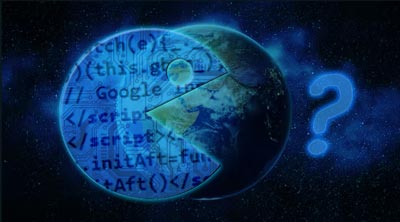 In 2011, Marc Andreesen told us that software was eating the world. Software was picking off parts of our lives and owning them (friendships, banking, professional networking, food ordering…).
In 2011, Marc Andreesen told us that software was eating the world. Software was picking off parts of our lives and owning them (friendships, banking, professional networking, food ordering…).
A decade later Andreesen’s colleague Benedict Evans added that when software eats the world, it’s not software anymore. I took this to mean that it’s not ‘software’ anymore, because it is the world. This is an idea I find utterly compelling.
In another decade, will software have chomped its way through houses, buildings, fields, cars, people to create new computational landscapes, with us inside?
As Prof Daniela Rus at MIT puts it, AI is “freeing computers from their boxes”. Computing is now everywhere. Whether a fraction of the size of an ant, or a massive space observatory, computers are shape-shifting. And when these smart machines look around, they’re not just looking for themselves, they are scanning for all other robots. They are weaving together a massive simulation of the world, along with a simulation of us inside that new world.
Billions of AIs are weaving themselves together in an Earth-sized robotic machine.
AI can turn whole surfaces into cameras and buildings into robots. Once you buy Amazon’s home products such as the Ring Doorbell, Alexa Guard robot, Halo Rise sleep tracker, Ring Always home cam drone, your house is no longer really just a house, but an Amazon robot itself. Furthermore, it’s a node in a city’s worth of robot houses.
Even without smart kit, machine vision can now ‘screen scrape’ the world, to use Pete Warden’s phrasing. Legacy systems can be interpreted at a distance by robot eyes who can read analogue dials or gauges (or people), and thereby made smart.
Our planet is being encased by a machine exoskeleton (made up of satellites, autonomous vehicles, cars, data centres, etc). Like grids or sewerage systems, this is increasingly critical infrastructure that keeps the world’s economies humming.
I love this quote from Bratton, where he states that “society now asks of software things that it used to ask of architecture, namely the organization of people in space and time”.
Making sure this vast machine improves our lives is the key – it’s no use squeezing ourselves into a robot-first universe. It must be designed in such a way that solves existing problems, and mitigates new ones. We should always be asking, ‘is what we are building what we actually need?’ None of this is inevitable (even though it can feel as though it is), we are very much still in control of tech.
Futurism is about exploring and unpacking questions like these – to help companies, governments, individuals build a better and more desirable future. It’s what makes this such a fascinating job.

Sophie Hackford is a futurist, technologist, researcher and conference speaker. She is a first-hand witness to many of the latest innovations and the creative thinkers behind them and is a practised translator between academia, technologists, corporates and governments. Rather than providing answers, she challenges organisations to question themselves and reassess their core business.
View Sophie’s full speaker profile here.
To book her for your event please contact your JLA agent.